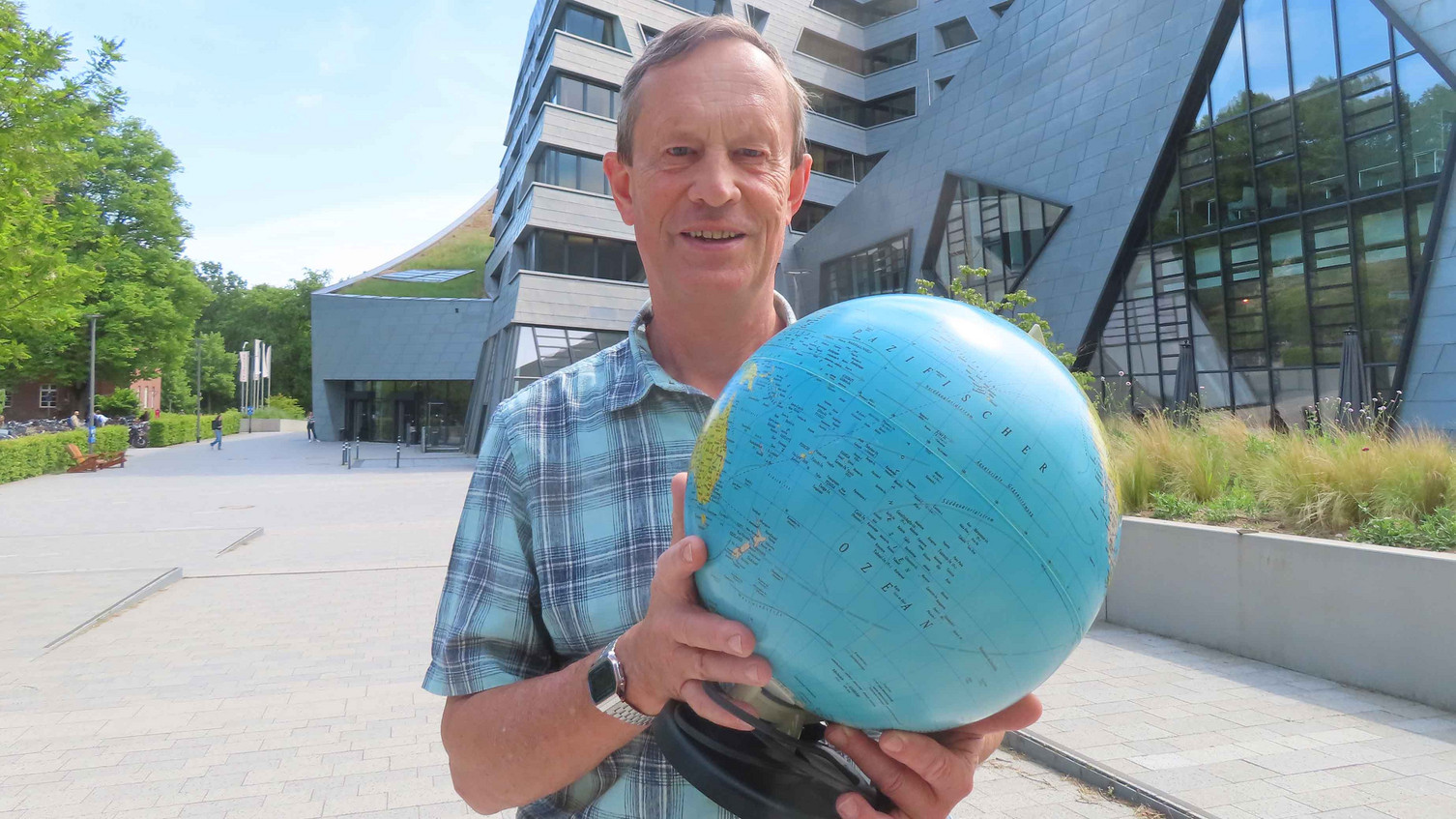Farewell: apl. Prof. Dr. Peter Pez
Geography is the sustainability discipline par excellence
2025-05-21 Transport geography, closely linked to transport policy and planning, is his principal field of research – and his great passion. In fact, however, the teaching of apl. Prof. Dr Peter Pez has spanned the full breadth of the geographical discipline: climatology, geomorphology, economics, retail, urban and rural settlement systems, agriculture, tourism, demography, migration, and development geography. “The science of space must necessarily consider and integrate all sub-disciplines. This perspective allows for the comprehensive identification of structural problems and the formulation of appropriate solutions – as most aspects of sustainability are spatially embedded.”
It all began with Cultural Studies
In 1990, he joined Leuphana University of Lüneburg as a research associate through a programme aimed at addressing staff shortages. The “Applied Cultural Studies” programme had been launched only four years earlier and was undergoing rapid expansion. However, staffing increases alone were not enough – structural changes were also required.
“In addition to leading seminars, I found myself – still very early in my career – responsible for two major lecture series and large-scale excursions. At other institutions, these duties would typically be reserved for seasoned professors. In a very short time, we were also able to streamline, optimise, and professionalise the structure of geographical education – not only within the cultural sciences, but also in the environmental sciences and teacher training. This baptism of fire made me a generalist in record time.”
In 1997, now permanently employed as a Senior Lecturer (Akademischer Rat), Peter Pez completed his habilitation with a thesis on transport mode choice and its influencing factors, using Kiel and Lüneburg as case studies. His commitment to improving teaching efficiency, simplifying curricula and integrating teaching with performance-based funding frameworks shaped his leadership as Director of Studies and Dean of Budget and Planning during the early 2000s, and from 2009 to 2012 as Dean of the Faculty of Education, Culture and Social Sciences (now: School of Culture and Society).
Uni must go out
“The academic ivory tower never appealed to me. As someone trained in applied geography, I’ve always aimed not just to explain spatial structures, but to identify problems and propose solutions – both within and beyond the university.”
That mission began early in his Lüneburg career, when he provided academic support for the city’s inner-city traffic calming programme (1991–1993), part of its transport development plan. Since then, his initiatives and commentary on urban and regional development have remained a constant – often acting as catalysts for scientific modelling and paradigm shifts. In the “Cycling Promotion 3.0” project, now being implemented across Lüneburg city and district, he successfully advocated for accessibility, network permeability, analogue and digital network transparency, and the development of “scenic cycle routes”.
“With the latter,” says the Flensburg native, “I wanted to make it clear that cycle routes should not merely be tacked onto main roads, as is unfortunately often the case, but should also meet standards of quality and experiential value.”
The Federal Ministry for Digital and Transport recognised the strategy he co-developed with the Lüneburg District with €1.8 million in funding as part of the ‘model project Rad (bike)’.
P(LANNED), E(FFICIENT), Z(IPPY)
Short surnames lend themselves to acronymic interpretations – and geographers, of course, always have a map (i.e. a “plan”) close at hand.
“I try to avoid improvisation wherever possible. Instead, I believe in good planning to optimise the efficiency of all teaching, research and administrative processes – and in handling tasks with zippiness. Nothing should be put off unnecessarily! That goes for email too.”
In retirement, his primary ambition is to travel.
“Exploring the world is probably part of a geographer’s DNA – and there’s still so much of it I haven’t experienced firsthand,” says Pez. He pauses briefly and adds: “Above all: the P-olar regions, all of E-urasia, and the Z-ones of climate and culture.”

